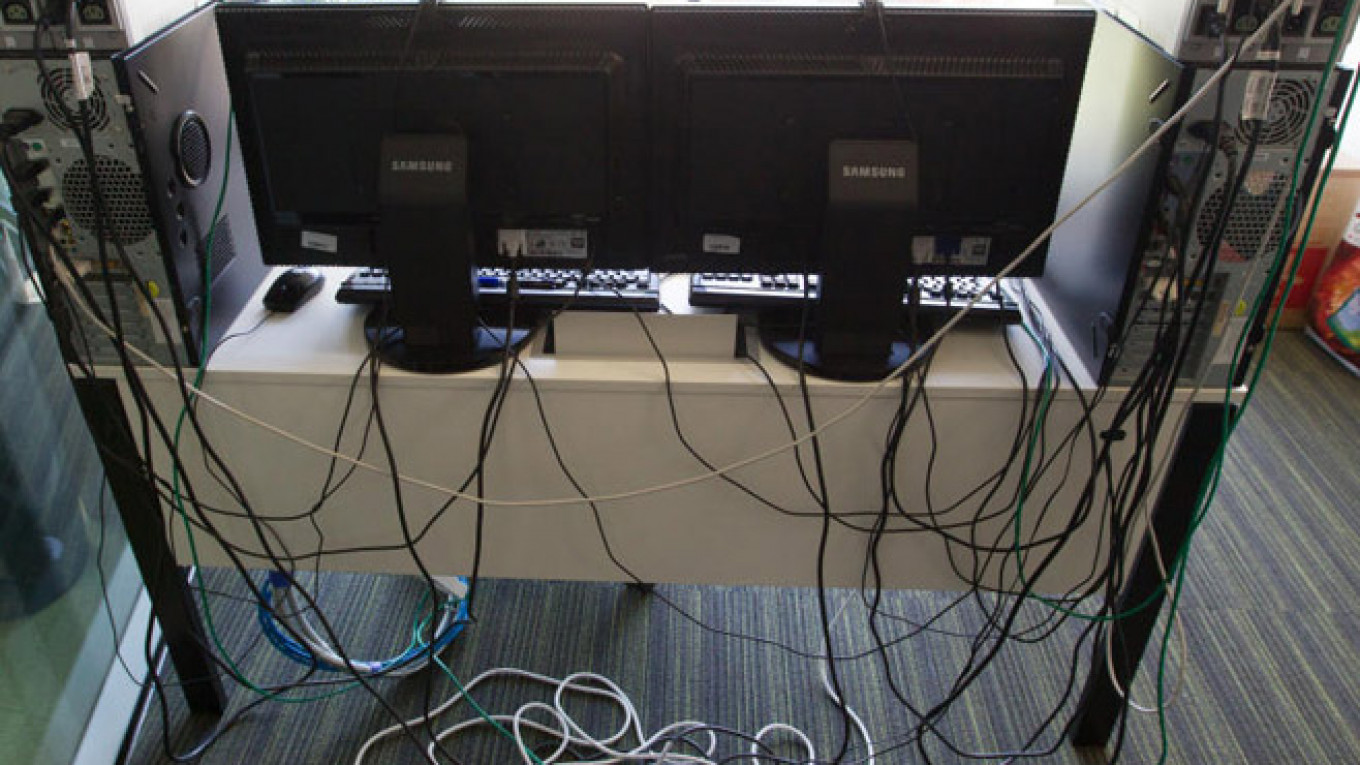The U.K.'s data protection watchdog has warned that a Russian-based website is tapping into insecure webcams to broadcast scenes from thousands of unsuspecting people's daily lives, as British troops training in Poland have been ordered to leave their personal electronic devices at home amid a "very clear" threat of Russian espionage.
The warnings, perhaps the latest confirmation of the resourcefulness of Russian hackers and the advanced nature of Russian cyber espionage, came just two days after Germany's domestic intelligence chief said in comments to Reuters that the country's government and business computers were being confronted by an increasing number of cyber attacks launched by Russian and Chinese intelligence services.
In a blog posted to the website of the U.K.'s Information Commissioner's Office (ICO) on Wednesday, the agency said that a new website had been set up "that allows people to watch live footage from some of the insecure cameras across the world." The statement refrains from disclosing the name of the website.
"The footage is being collected from security cameras used by businesses and members of the public, ranging from CCTV networks used to keep large premises secure, down to built-in cameras on baby monitors," the statement said.
The Daily Mail, which reports to have found the website in question but did not disclose the web address, reported on Wednesday that scenes were being broadcast on the website from 600 different web cameras, showing scenes of "children sleeping in their cots" and even "an elderly woman sitting in her living room."
The report notes that such footage provides burglars and other criminals with the perfect opportunity to strike when they know their victims are not at home.
According to the ICO, the Russian website has been able to show such scenes simply by finding the default passwords of webcam manufacturers on the Internet. Anybody who has a webcam but fails to change the password is susceptible to being spied on by hackers.
Meanwhile, British troops have been ordered not to bring mobile phones or computers with them to upcoming military exercises in Poland over fears that Russian cyber spies will be on the prowl, The Telegraph reported, citing a military newsletter.
Russia is of particular concern amid ongoing political tensions over the Ukraine crisis, which has pitted Moscow against the West and triggered aggressive posturing between NATO and Russia's Defense Ministry.
Russia has been suspected of deploying cyber warfare tactics during similar political conflicts with its own neighbors in the past, with Estonia having reported a cyber attack in 2007 and Georgia in 2008.
Calum Jeffray, a research analyst at the Royal United Services Institute, was cited by The Telegraph as saying it was difficult to distinguish between simple hacker attacks and carefully orchestrated cyber attacks by Russia's intelligence services.
"There are several Russian-linked hacking groups, but it's almost impossible to determine to what extent they are supported by the state," Jeffray said, The Telegraph reported.
In late October, U.S. security firm FireEye issued a report saying a sophisticated group of Russian hackers was spying on NATO — likely at the behest of the Russian government.
Contact the author at a.quinn@imedia.ru
A Message from The Moscow Times:
Dear readers,
We are facing unprecedented challenges. Russia's Prosecutor General's Office has designated The Moscow Times as an "undesirable" organization, criminalizing our work and putting our staff at risk of prosecution. This follows our earlier unjust labeling as a "foreign agent."
These actions are direct attempts to silence independent journalism in Russia. The authorities claim our work "discredits the decisions of the Russian leadership." We see things differently: we strive to provide accurate, unbiased reporting on Russia.
We, the journalists of The Moscow Times, refuse to be silenced. But to continue our work, we need your help.
Your support, no matter how small, makes a world of difference. If you can, please support us monthly starting from just $2. It's quick to set up, and every contribution makes a significant impact.
By supporting The Moscow Times, you're defending open, independent journalism in the face of repression. Thank you for standing with us.
Remind me later.






